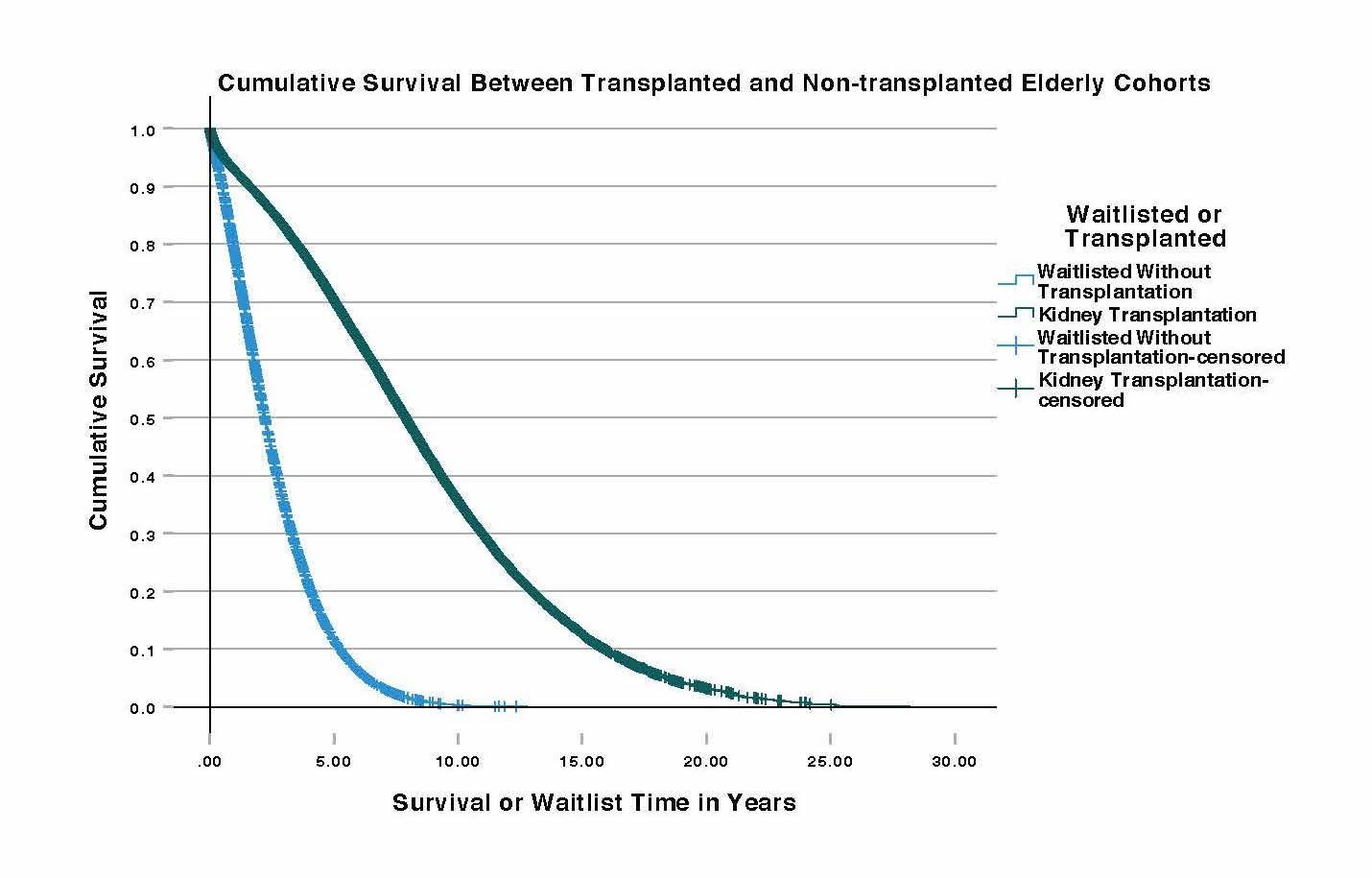Superiority of Renal Transplantation in ESRD Management Over Long Term Dialysis in Octogenerians
Temple University Hospital, Philadelphia, PA
Meeting: 2022 American Transplant Congress
Abstract number: 314
Keywords: Ethics, Kidney transplantation
Topic: Clinical Science » Kidney » 50 - Health Equity and Access
Session Information
Session Name: Health Equity and Access I
Session Type: Rapid Fire Oral Abstract
Date: Monday, June 6, 2022
Session Time: 5:30pm-7:00pm
 Presentation Time: 6:50pm-7:00pm
Presentation Time: 6:50pm-7:00pm
Location: Hynes Ballroom C
*Purpose: In the last 2 decades there has been an increase in the number of patients aged 65 years and older who were placed on the kidney transplant waitlist and actually received a kidney transplant. However, outcomes for this population have not been extensively studied. This study assesses the impact of receiving a kidney transplant as compared to staying on the waitlist for those aged 65 years and older and further analyzes outcomes in 5 year subpopulation (65-69, 70-74, 75-79 and 80+).
*Methods: The OPTN/UNOS STAR File database was utilized to identify waitlisted patients and kidney transplant recipients aged 65 years or older from 1987 to 2019. Using IBM SPSS statistical software, these cases were analyzed and descriptively examined. The elderly transplant recipient population was summarized and stratified by various characteristics and compared to an identically aged waitlisted but non-transplanted control group.
*Results: Transplanted patients aged 65 years+ (n = 60,980) had a one-year survival rate of 92.9% and a three-year survival rate of 84.9%. Conversely, the waitlisted but non-transplanted patient cohort (n = 36,072) had an 21.2% rate of death or removal from waitlist due to illness within one year, or an 78.8% healthy survival rate at one-year. This waitlist population experienced a 64.5% rate of death or removal from waitlist due to illness within three years, or a 35.5% healthy survival rate at three-years. In comparison to remaining on the waitlist, receiving a kidney transplantation provided a mean survival advantage of 5.8 years. Within the transplanted cohort, overall survival decreased with age across ascending 5-year age brackets, with best survival seen in those aged 65-69 (mean 8.9 yrs), followed by 70-74 (mean 7.8 yrs), 75-79 (mean 7.0 yrs), and 80(mean 6.0 yrs).
*Conclusions: Kidney transplantation in those aged 65 and older provides a survival advantage as compared to remaining on the waitlist. Even patients aged 80+ had an estimated mean survival of 6 years post kidney transplant. Further studies will be required to optimize outcomes and organ allocation in the elderly.
To cite this abstract in AMA style:
karhadkar s, Kolansky J, Wirshup K, Gregor A, Dawes J, DiCarlo A. Superiority of Renal Transplantation in ESRD Management Over Long Term Dialysis in Octogenerians [abstract]. Am J Transplant. 2022; 22 (suppl 3). https://atcmeetingabstracts.com/abstract/superiority-of-renal-transplantation-in-esrd-management-over-long-term-dialysis-in-octogenerians/. Accessed March 4, 2026.« Back to 2022 American Transplant Congress

